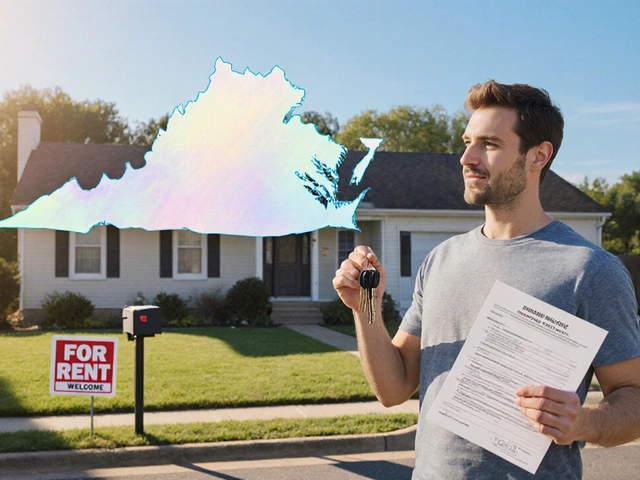Landlords can turn into ghosts, apartments change hands before you finish a coffee, and the word “fee” suddenly haunts every waking hour of your search. If you’re hunting for a home in New York City, you’ve probably heard horror stories about jaw-dropping broker fees and wondered if you really need a broker at all. But behind the sticker shock, NYC brokers are everywhere for real reasons. This city’s real estate market is nothing like the rest of the U.S. It can be ruthless—speed and connections matter. If you take on the search alone, you might save money, but the risks and stress could eat up your time, patience, and maybe even your sanity.
What Do NYC Brokers Actually Do For You?
NYC brokers aren’t just salespeople—they’re more like real estate bodyguards. Most of them live and breathe this city: they know what buildings take students, which landlords want three extra months of pay stubs, and when a listing is just clickbait for a moldy walk-up in the wrong zip code. The rental system can be a minefield. First, most listings are not direct from owner; about two-thirds of the rental market goes through brokers according to a 2024 Zumper report. So, you’ll see the same apartment advertised by five different agents, all while fees hover at 15% of your annual rent. That’s a lot, but in most cases, it’s the ticket to getting in the door.
It’s more than just opening locked doors at showings. Brokers hustle to get your application in before someone else (apartments usually rent within three weeks of listing in Manhattan), help target buildings likely to approve you, and sometimes even smooth out any kinks with picky management companies. You don’t want to discover you’re missing a letter of employment after you’ve fallen in love with a place. A solid broker checks your paperwork upfront, and many will walk you through complicated co-op board processes that scare off first-timers.
They also save a mind-boggling amount of time. Looking for no-fee apartments on your own? Sure, there are websites and apps galore (think StreetEasy, Naked Apartments), but lots of the best stock isn’t advertised publicly. You’ll often see outdated listings or places that are already snapped up—brokers sometimes find out about available units hours before they go live. With a shortage of affordable apartments—rent in Manhattan averaged $4,389 in May 2025—moving quick is everything. Some tenants, especially those coming from out of state or with limited credit histories, find having a broker opens more doors and shortcuts red tape.
| Year | Average Broker Fee | Median Manhattan Rent | Brokered vs Direct Listings (%) |
|---|---|---|---|
| 2021 | 12% | $3,433 | 63 / 37 |
| 2023 | 14% | $4,150 | 66 / 34 |
| 2025 | 15% | $4,389 | 68 / 32 |
Still, not all brokers are created equal. Some make a killing by hustling naive newcomers into lackluster properties. Good ones, though, can negotiate your rent, get you a rent-stabilized deal, or even fix a messy lease. It’s okay to shop around: meet a few, see who understands what you want, and don’t be afraid to ask exactly what they’ll do for their fee. Most legit agents work for licensed brokerages—double-check credentials and read recent online reviews before signing anything.

DIY Apartment Hunting: What You Risk (and Gain)
Plenty of New Yorkers swear off brokers. They’re determined to save money, dodge the infamous “broker fee,” and prove you don’t have to play by old city rules. There’s a thriving world of no-fee apartments out there—if you can handle the competition. Online platforms like StreetEasy, RentHop, and even Facebook groups can lead you to direct-from-owner listings. And in 2025, the city’s “Broker Fee Law” means rental agents have to disclose exactly who’s paying their fee (and why), so you won’t get hit with surprises.
But going solo is a lot of work. The best no-fee units go fast, and landlords often post dodgy or fake ads to lure hopeful renters. If you’re not from the city, the paperwork alone can burn you out: landlords want everything from tax returns to letters from previous landlords—but every building wants something different. Scams are real, too. A 2024 NYC Consumer Affairs report found that rental scams accounted for over $3.2 million in tenant losses last year. Walking into open houses, bracing for bait-and-switch tactics, and checking for bedbugs in the walls becomes routine in DIY hunting. It’s survival of the fastest and the most organized.
Still, you get more control. Maybe you know a friend whose roommate is moving out, or you land a gem by walking up and asking a super if any units are open. That kind of hustle can pay off. You’ll definitely save on fees, which can be over $7,500 on a standard one-bedroom downtown. If you’re persistent and flexible—willing to accept a slightly longer commute or older finishes—it’s totally doable. Some smart tips:
- Set up alerts on every major listing site so you get instant notifications.
- Double-check every address and management company for scams (Google reviews are a lifesaver).
- Prepare all your docs ahead: ID, tax returns, letters, pay stubs, and a “renter’s resume.”
- Bring a deposit check to showings. Some deals close in hours.
- Treat every viewing like an interview—landlords often judge by first impressions.
Sometimes it’s also worth looking in the off-season (November through March), when demand drops and landlords get more desperate. Rents fall an average of 6% in winter according to RentCafe, and you’re more likely to see “no fee” deals pop up as landlords compete for shrinking renter crowds. Just remember, you’re doing all of the scheduling, paperwork, and troubleshooting yourself.

When Should You Splurge on a NYC Broker?
Now, here’s where the real debate kicks in. Is saving the fee always better? Honestly, it depends on your situation. If you’ve got more time than money, rock-solid credentials, and nerves of steel, skip the broker. You’ll keep a fat wad of cash and maybe find a story to tell next summer at rooftop drinks in Brooklyn.
But the broker’s fee can become a worthy investment if you’re under the pump to move quickly, have a less-than-perfect credit score, or are moving in from another city or country. International tenants, students, and anyone without local references often need the help just to get their foot in the door. It’s safer to have someone walk you through the paperwork and negotiate (and sometimes even vouch for you) when landlords get picky. Plus, you get access to hidden inventory—some buildings only rent through brokers to keep things quiet or take the hassle off their staff.
For people after rare setups—like pet-friendly two-beds, luxury doorman spots, or rent-stabilized apartments—a broker is practically a shortcut. Some brokers focus entirely on those niches, and their insider connections make all the difference. If time means money for you (say, you’re starting a new job next week), that fee starts to look like a bargain. Factor in costs like taking off work, paying hotels while you search, or risking a bad lease and paying to break it early—suddenly, having a broker isn’t just about “being lazy.”
You can sometimes get lucky and find a “no fee” broker listing too. In these cases, the landlord pays the agent directly so you don’t have to. These deals appear more in new buildings and less in the most desirable neighborhoods, but they’re worth keeping an eye out for if you want the help without the added bill.
Just don’t hire a broker blindly. Shop around, interview a few, and ask pointed questions about their listings, fees, and services. If something feels off—or they pressure you into paying upfront—walk away. Good agents don’t ask for money until you’ve signed a lease. Above all, check their license on the NYS Department of State database. In 2025, that’s still the gold standard for avoiding dodgy freelancers.
Here’s a breakdown of things to consider when deciding if hiring a broker makes sense for you:
- How much time do you have? If you’re in a rush, brokers speed things up.
- Are you local? Out-of-towners often don’t have the network to spot scams and need the extra support.
- What’s your budget? Broker’s fees can run $6,000–$10,000 for a typical lease.
- Are you looking for specialized or rare apartments? Niche brokers have inside info regular listing sites don’t.
- Are you confident with NYC paperwork and negotiations? If not, hiring help can keep you from costly mistakes.
The NYC broker costs debate always comes down to what you value more: your savings or your sanity. Whichever you decide, do your homework. The rental market here isn’t a game of chance—it’s a game of speed, connections, and yes, lots of paperwork. Whether or not you end up paying a broker, knowing the rules puts you way ahead of the rookie crowd.





